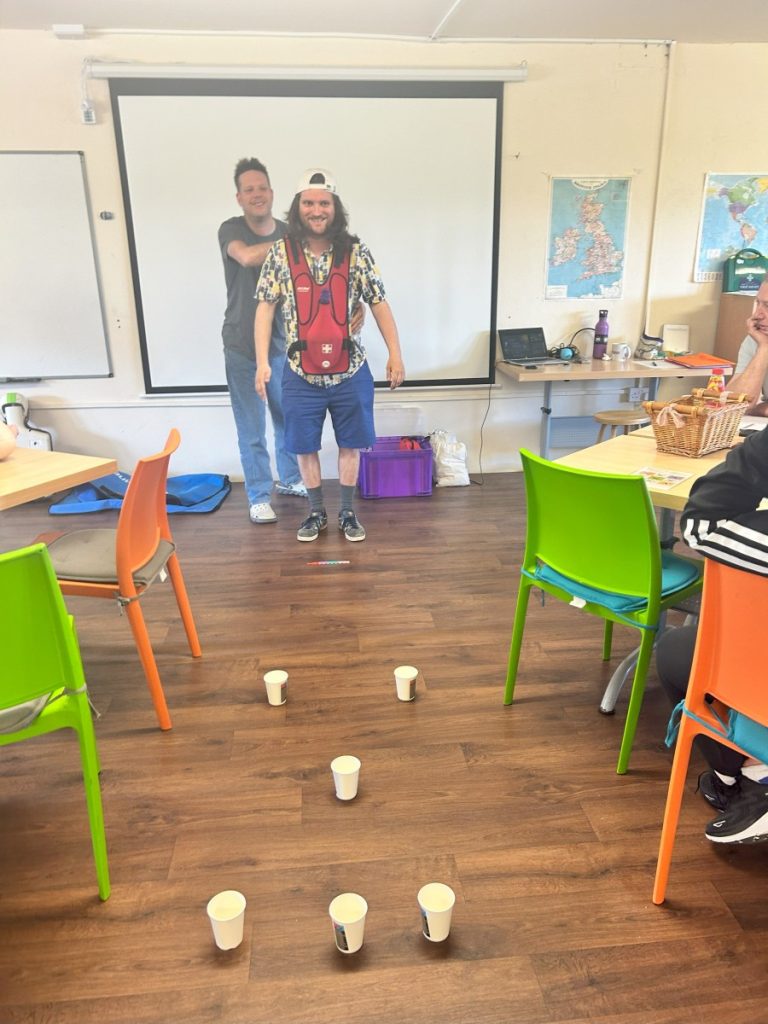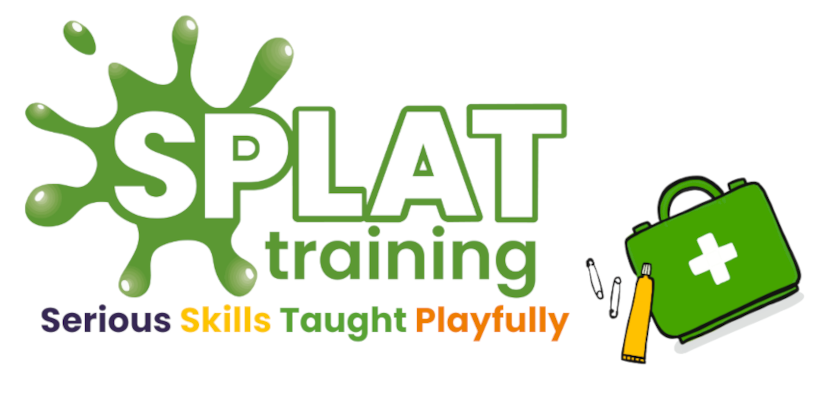At Splat Training, we believe learning doesn’t have to be boring. In fact, we think the opposite is true – when people are engaged, curious, and having fun, they learn better and remember more. Learning through play is an essential in our courses.
That’s why we design all our training to be playful, people-first, and packed with purpose. We teach serious skills in a way that sticks, and it’s backed by research.
One of our favourite bits of feedback sums it up beautifully:
“They made it feel like play, but you walk away knowing you could save a life. That’s magic.”
Play Is Powerful
You might associate ‘play’ with children, but the science is clear: adults need it just as much. According to HelpGuide.org, play helps adults relieve stress, improve brain function, and build social connections. Play also encourages problem-solving, creativity, and emotional resilience – all essential in first aid scenarios.
When we use play in training, it’s not just to break the ice. It’s because playful learning boosts memory, builds confidence, and makes the whole experience more meaningful.
It’s All Based on Brain Science
We’re not just throwing in a few games and hoping for the best. Our courses are rooted in Sharon L. Bowman’s “Training from the BACK of the Room”, a powerful, research-backed framework for adult learning. It flips the traditional “trainer talks, learner listens” model on its head and replaces it with something far more effective: active learning that sticks.
At the heart of this approach are the 4Cs:
🧩 Connection
Before learners can absorb new information, they need to connect it to what they already know. That’s why we start with questions, stories, and warm-up activities that help learners feel safe, curious, and engaged. We create a shared starting point — not just between the learners and the content, but with each other too.
📚 Content
This is the information itself — the essential facts, frameworks, and procedures. But rather than just delivering it in a lecture, we use creative methods to introduce the content in bite-sized, memorable ways: colourful resources, playful analogies, props, visual aids, and storytelling.
🧠 Concrete Practice
Here’s where the learning gets real. Concrete Practice means applying the new skills in a hands-on, brains-on way. Think roleplay, team challenges, interactive scenarios, group games — things that simulate real-world decision-making and help build confidence and muscle memory. It’s one of the biggest differences between passive and powerful learning.
🎯 Conclusion
We never leave learners hanging. The final step is all about reflection and takeaways. Learners share what they’ve discovered, summarise the key points, and start to think about how they’ll apply it back in their own context. It’s a chance to celebrate progress and solidify what’s been learned.
Each course we run moves through these four stages – and often more than once! It’s not about cramming in content, but creating a learning journey that really lands.
What Does It Look Like?
From the outside, our training might look like fun and games – and that’s part of the magic. There’s laughter, movement, storytelling, dice, props, skits, songs, and silly metaphors. But every single moment is designed with purpose.
We might use a memory game to teach the steps of CPR. A roleplay to practise talking to emergency services. A storytelling challenge to explore real-life scenarios. Or a group activity that helps learners practise bandaging under pressure.
Behind every activity is a clear objective – and a lot of learning science.
Training That Sticks (and Feels Good)

At Splat Training, we’re proud to do things differently. We’ve seen again and again how play helps people show up, speak up, and soak up essential skills.
Because learning shouldn’t be a box to tick. It should be an experience to remember.
So if you’re looking for first aid training that’s hands-on, human, and actually enjoyable, come and explore what we offer.
We’d love to show you how serious skills taught playfully can change the way you learn – and the way you help others.

